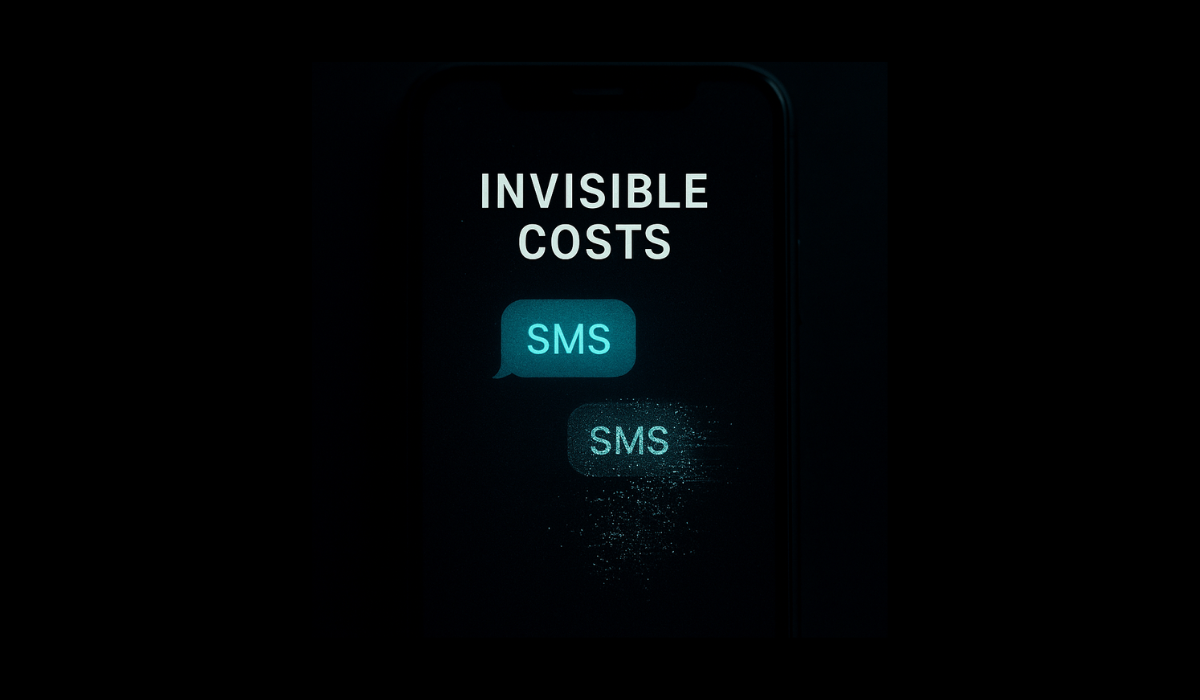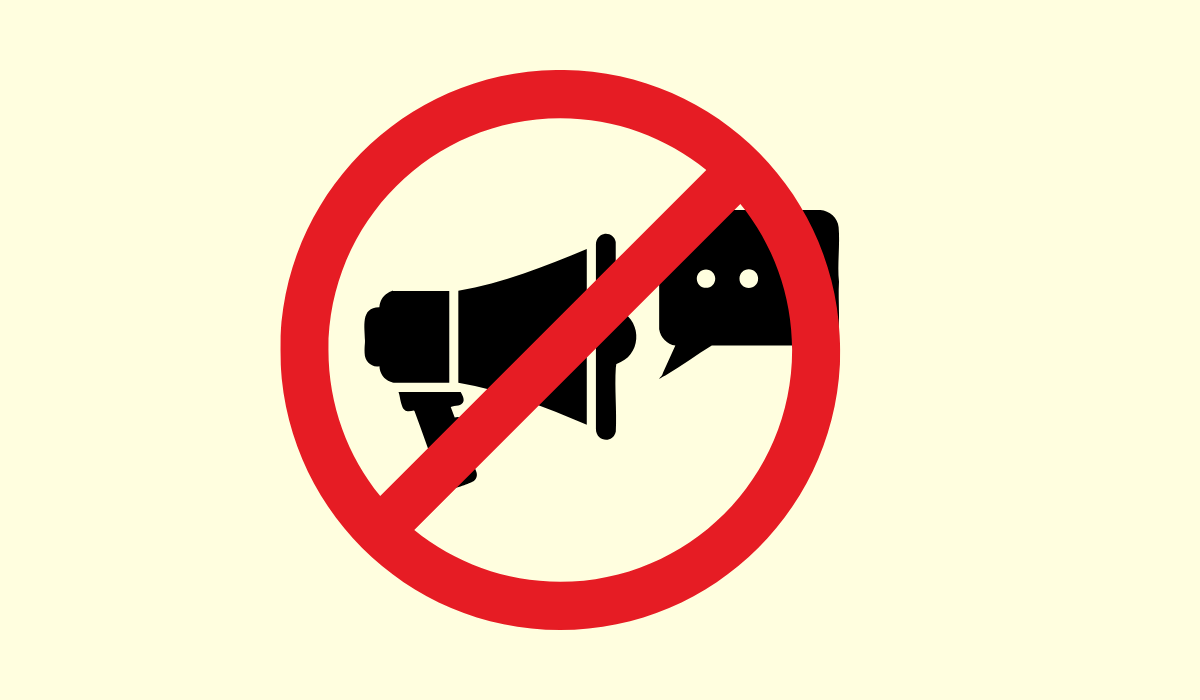Three months ago, your SMS campaigns hit 94% deliverability. Last month, 87%. This month, 81%.
Are SMS Compliance Rules Silencing Free Speech in Marketing?
Few marketing channels are as tightly controlled — yet so widely used — as SMS. Behind every promotional text lies an invisible gauntlet of carrier rules, algorithmic filters, and registration barriers. Most recipients never realize how many messages are blocked before they even arrive. For businesses, that invisible wall is growing taller. What began as a framework to prevent spam and protect consumers is now raising a deeper question: Are carriers suppressing legal speech under the banner of compliance?

2025: When Consent Isn’t Enough
In 2025, U.S. businesses are facing a paradox: even with customer consent and legal products, messages can be blocked by carrier algorithms for violating vague or overly broad content guidelines. At the center of this friction are regulations like the CTIA’s SHAFT rules, 10DLC registration filters, and TCPA-driven opt-in requirements. While these standards aim to combat spam and fraud, they also prevent entire industries from using SMS at all.
This article explores the growing tension between SMS compliance and marketing freedom — who decides what gets delivered, why it matters, and whether these restrictions have crossed the line into corporate censorship.
SMS Compliance: Guardrails or Gag Orders?
The Telephone Consumer Protection Act (TCPA) provides the legal foundation for SMS marketing, requiring businesses to obtain explicit consent, include opt-out instructions, and follow time-of-day restrictions. Layered on top are carrier-enforced policies from groups like the CTIA, which dictate acceptable content and formatting.
Over the past few years, telecom providers have aggressively tightened these policies. Most notably, they introduced 10DLC registration, which requires brands to pre-register campaigns and disclose message content in advance. Unregistered or non-compliant traffic is now routinely filtered or blocked.
According to T-Mobile and AT&T documentation, campaigns that fail to complete registration may be denied delivery entirely, regardless of user opt-in.
Carriers claim these steps protect consumers. Indeed, filtering out phishing scams, hate speech, and explicit content makes sense from a safety perspective. But increasingly, the filters extend far beyond fraud prevention, targeting entire categories of lawful products and ideas.
Learn more: Why Your SMS Messages Aren’t Delivered—and What Carriers Don’t Want You to Know
The SHAFT Rule: When Content Is Off-Limits
The SHAFT rule — which bans SMS content related to Sex, Hate, Alcohol, Firearms, and Tobacco — is a cornerstone of CTIA’s guidelines. These categories are treated as inherently high-risk, and carrier systems are designed to block them automatically, regardless of legality or subscriber intent.
Key restrictions include:
- Sexual content: Explicit messages or even innuendos are banned outright.
- Hate speech: Any language deemed discriminatory or inflammatory is prohibited.
- Alcohol: Promotions are allowed only with strict age-gating and prior approval — often via short codes.
- Firearms: Marketing of guns, ammo, or related accessories is blocked unless narrowly approved.
- Tobacco and vape products: Almost universally banned, including federally legal nicotine pouches and e-cigarettes.
The rule’s impact is immediate: if your campaign content includes a trigger word — like “CBD,” “whiskey,” or “crypto” — you risk getting filtered, regardless of audience opt-in or context. According to Twilio's Acceptable Use Policy and documentation from Postscript and Attentive, these topics are considered high-risk or non-compliant unless explicitly approved — and usually not via 10DLC at all.
Caught in the Filter: Industries Silenced by Compliance
Cannabis & CBD: Legal Products, Invisible Messages
Despite growing legalization, CBD and cannabis brands are blocked from SMS marketing across the board. Carriers reject these campaigns outright — even if products are federally legal and customers have explicitly opted in.
In a notable 2010 case, T-Mobile shut down a short code used by WeedMaps, even though 10,000+ subscribers had opted in. The SMS provider sued, citing free speech concerns, but the carrier’s decision stood. While the lawsuit was eventually dropped, it highlighted how SMS messaging — unlike email or phone — can be selectively restricted by telecom infrastructure owners.
Alcohol & Tobacco: Age-Gated but Still Restricted
Alcohol-related messages can only be sent on registered short codes with carrier-approved age verification. This setup is expensive and inaccessible for most small businesses. Even if compliant, campaigns may still be rejected at the carrier level if they include restricted language like “bourbon,” “IPA,” or “happy hour.”
Tobacco and vape content is even more restricted, with most carriers imposing blanket bans — regardless of age-gating, opt-ins, or legality. Major SMS platforms like SimpleTexting and Emotive confirm that vaping, nicotine, and tobacco are all listed as prohibited topics.
Cryptocurrency: High-Risk by Default
Messages about crypto trading, investment tips, or even blockchain education are often flagged as “high-risk financial content.” The Campaign Registry (TCR), which oversees 10DLC approvals, frequently rejects campaigns that mention cryptocurrency due to its association with scams — even for verified, regulated platforms.
Only transactional messages (e.g., two-factor authentication codes) are typically allowed. This shuts down a vital channel for platforms seeking to educate or retain users via SMS. As recently as 2024, several crypto alert services publicly reported being blocked or delisted by their SMS providers, despite years of clean delivery history.
Who’s Really Deciding What Gets Blocked?
Unlike email, where messages can still be delivered to a spam folder, SMS content blocked by carriers simply disappears — without notice or appeal. This is because telecom providers consider themselves private networks, not common carriers, and are therefore not obligated to transmit every message.
Critics argue this creates a dangerous precedent: a handful of corporations get to decide what lawful businesses can say to their customers. These decisions are made via opaque policies, automated filters, and subjective content reviews — without regulatory oversight or consumer input.
A 2007 incident involving Verizon illustrates the risk: the carrier initially blocked a pro-choice group’s SMS campaign before reversing course under public pressure. Legal scholars warned that such actions skirt the edge of private-sector censorship. Verizon ultimately conceded that their decision was wrong, but the case exposed the vulnerability of SMS to ideological filtering.
Is This Still About Consumer Protection?
There’s no question that consumer safety is a valid concern. The rise of SMS phishing, spoofing, and unwanted spam texts has eroded trust in the channel. Carriers’ efforts to vet content and enforce registration help curb abuse.
But when entire industries are locked out — even with transparent practices and user opt-ins — the line between protection and suppression starts to blur.
In a free market, consumers can decide what messages they want to receive. When that choice is overridden by unseen filters, freedom of communication becomes a casualty of compliance.
How Marketers Can Navigate the Compliance Minefield
To maintain SMS reach while minimizing risk, marketers should:
- Avoid SHAFT content unless approved by carriers via short codes and proper vetting.
- Use precise, compliant language to steer clear of trigger phrases that activate filters.
- Register all campaigns via 10DLC with detailed use-case descriptions and opt-in proof.
- Monitor deliverability rates and consult compliance experts if messages are blocked. See: Why Your SMS Messages Aren’t Delivered
- Use alternate channels (email, push, WhatsApp) to support SMS when facing restrictions.
Conclusion: A Call for Transparency, Not Just Control
SMS marketing remains an effective, high-engagement tool — but the current compliance model risks becoming a silent censor. As carriers increase their control over what can and cannot be said via text, marketers are right to ask: Where is the line between safety and suppression?
Without greater transparency and accountability, industries operating legally and ethically may continue to be silenced — not for breaking rules, but for touching topics carriers find uncomfortable.
If SMS is to remain a trusted, accessible, and open marketing channel, it must serve both its gatekeepers and its users. That starts with respecting consent, ensuring fairness, and giving lawful businesses a voice.
From the blog
Lorem ipsum dolor sit amet consectetur, adipisicing elit. Ipsa libero labore natus atque, ducimus sed.


SMS Marketing, SMS, sms carrier, tcpa
Why SMS Marketing Might Be Dead in 5 Years—If Carriers Keep This Up
For over a decade, SMS marketing has been the bedrock of mobile engagement. With open rates often cited above 95% and near-universal device compatibility, it seemed indestructible. Yet today, industry insiders are sounding the...

SMS, sms carrier, tcpa, tcpa restrictions
Are SMS Compliance Rules Silencing Free Speech in Marketing?
Few marketing channels are as tightly controlled — yet so widely used — as SMS. Behind every promotional text lies an invisible gauntlet of carrier rules, algorithmic filters, and registration barriers. Most recipients never...